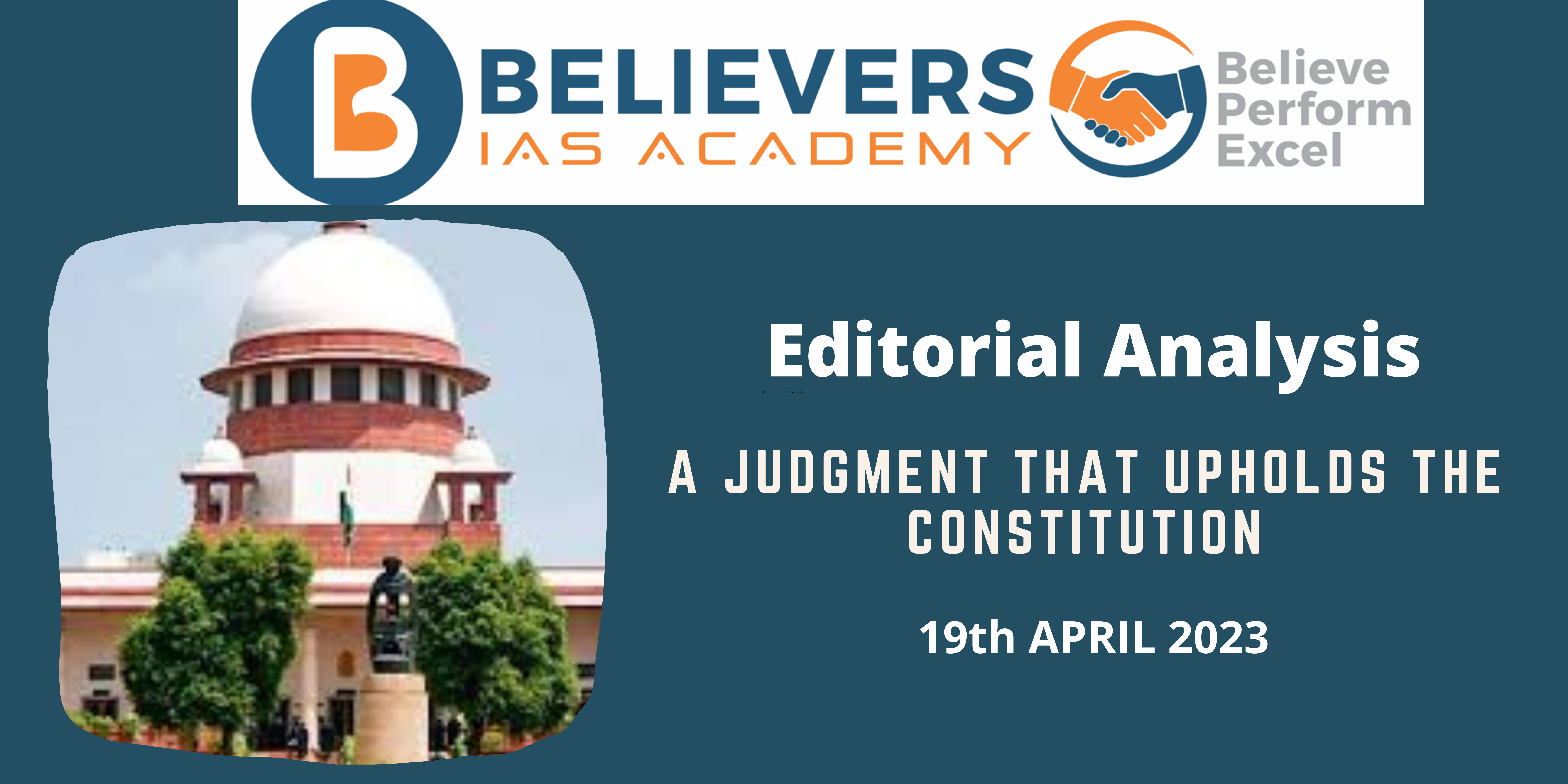A Judgment That Upholds The Constitution
Context:
Madhyamam Broadcasting Ltd. Media One Headquarters v. Union of India and Others, the Supreme Court’s ruling in the Media One case, calls for a political interpretation in addition to a legal one. It is both a court order against sealed cover misconduct and a seminal ruling on the right to free expression.
Points to ponder:
- The ruling of the Supreme Court in the Media One case, which distinguishes the government from the people and upholds the citizen’s right to challenge the government, is a landmark judgement on the freedom of expression and a court fiat against sealed cover misconduct.
- The ruling was made at a time when the Centre is under fire for attempting to undermine democratic institutions and the Supreme Court is under fire for delaying critical case hearings and upholding draconian laws.
- The Chief Justice of India, D.Y. Chandrachud, has helped modernise the court, and the Anoop Baranwal case is only two example of how the supreme court has worked to reclaim its prestige.
- The Media One ruling has highlighted the institutional strength of the court in tumultuous political times and squarely faced the Centre, which unilaterally revoked a television channel’s licence citing “national security” before being ordered by the court to extend the licence.
- As shown in several instances in various countries, populist autocracies attempt to stifle the judiciary on a worldwide scale with their majoritarian urge.
- The Media One ruling demonstrates the judiciary’s efforts to play a counter-majoritarian role that is qualitatively distinct from the role that the opposition is intended to play and resist majoritarian overtones.
- The court cannot impose a political check, which can only be achieved through popular movements or election outcomes; it can only present a judicial or constitutional check against an aggrandizing State.
- The Media One ruling has more inherent worth because of the constitutional politics at play, but for the Constitution to survive, there may need to be a struggle outside of the court that supports the work of the court.
Global Context:
- The current large-scale protest in Israel is mostly in opposition to Prime Minister Benjamin Netanyahu’s attempt to interfere with the independence of the judiciary. Authoritarian regimes have used a variety of strategies to undermine judicial systems, as demonstrated by a significant study on abusive judicial review by David Landau and Rosalind Dixon (2020).
- In recent years, judges in Bolivia have been fired in an arbitrary manner.
- By lowering the retirement age for judges in Poland, the dictatorship replaced older judges with new, government-loyal individuals.




